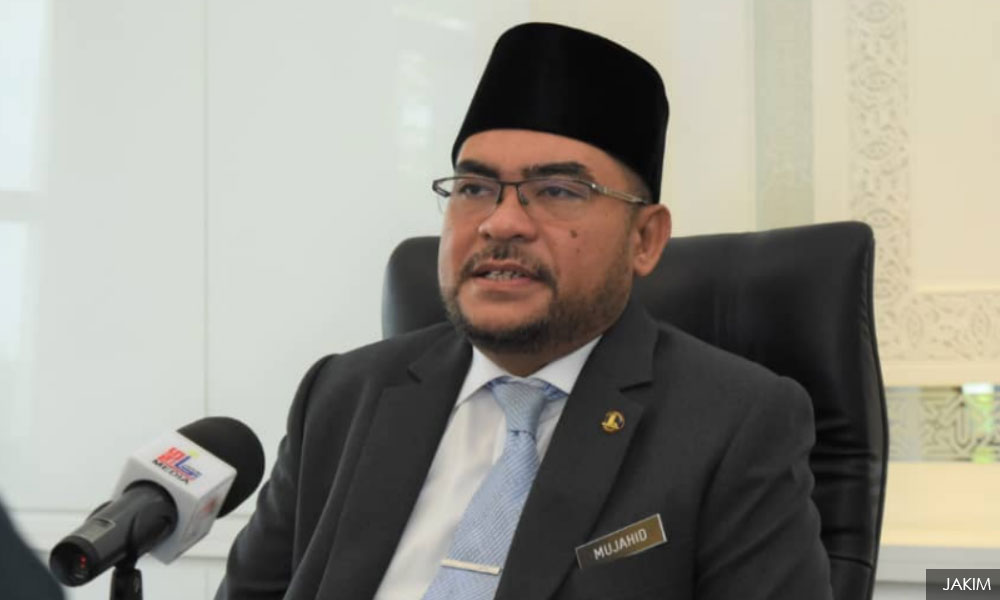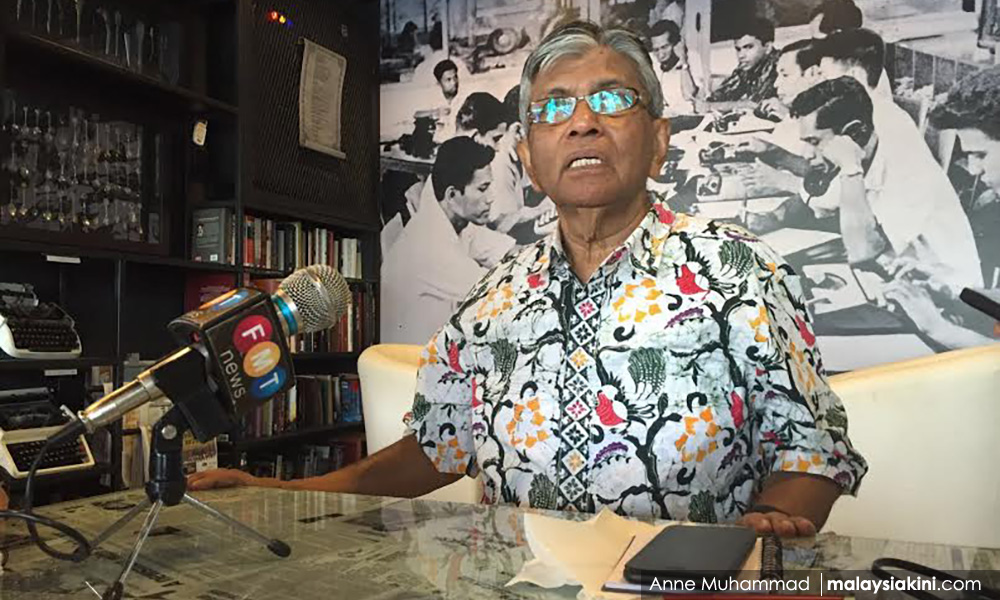“It needs a new face with new ideas, but everything stays in order to improve. So, the question of doing away with Jakim has not arisen at all.”
– Mujahid Yusof Rawa
COMMENT | A recent Nancy Graham Holm article in Huffington Post, which examines the fallout from a BBC4 radio programme about ‘progressive Islam’, is worth reading because it highlights issues that are germane to the kind of Islamic politics this new Pakatan Harapan regime is attempting to propagate.
The man now in the Islamic hot seat is the always-charming Mujahid Yusof Rawa. In a Malay Mail interview, he assured people that the Department of Islamic Development (Jakim) and its bloated budget were "vital" to the smooth running of the government. He also claimed that under the previous administration, a "huge" amount of the budget went into the pockets of various state-level religious operatives for various reasons, which included Islamic schools.
As for the think-tank under his purview, the Malaysian Islamic Strategic Research Institute (Iksim), he said that he would consult the Council of Rulers when he has to decide on its fate.
Siti Kasim is right when she mocks Mujahid for enabling Jakim and its huge budget, and his dodge of getting the royalty involved when it comes to Iksim – a private think-tank that has nothing to do with royalty.
What new ideas can Mujahid bring to Jakim? If everything has to stay in order to improve, then what is the point of new ideas anyway?
Big on rhetoric
Mujahid talks in platitudes, never in detail. His answers lack nuance, but are big on the feel-good rhetoric some supporters lap up. How's this for you: new ideas are welcome, and maybe what Mujahid should be doing is rejecting old ideas which have done nothing but divide this country and the Malay-Muslim majority.

In a series of interviews with Malaysiakini, he proclaimed many ideas that rational Malaysians want from the Islamic discourse and ministries in this country.
Many were no doubt impressed with the political and religious sentiments expressed by the head honcho of religious affairs in the Prime Minister’s Department. However, a cursory examination of his statements reveals that Mujahid’s rhetoric does not stand up to scrutiny.
Let us take this statement for instance. “When it comes to morality, that is their personal space. But don’t publicly encourage it in the open because it then becomes an offence under the law.”
This seems ‘reasonable’ on first reading, right? But then why do religious authorities intrude in the personal spaces of Muslims and non-Muslims at all? Why do religious authorities raid homes and private establishments looking for transgressions? Is Mujahid claiming that under this new administration, these practices would stop? Is he claiming that Muslims would be allowed to live in peace however they choose, as long as it is in private?
By the way, some of the things some religions consider an “offence under the law” are upheld as human rights in functional democracies all over the world. Some of the things Islam and other religions consider ‘haram’ or ‘sinful’ are accepted basic human rights in the rest of the democratic world.
Mujahid claims that Harapan does not want to politicise religion, but this of course is complete horse manure. If you really did not want to politicise religion, then you would not have to look to any kind of Islamic jurisprudence or alternative views to justify policy decisions you make. In his own words, he claims that in order to contemporise Islam, he needs to look at other Islamic sources. The claim that Islam is not partisan is ludicrous.
And that is the problem right there. PAS, for instance, in wanting amendments to the Syariah Court (Criminal Jurisdiction) Act 1965 or Act 355, is in keeping with their ideological and religious stance.

The question, is, why hasn’t Harapan come out and declared that they are against Act 355? If this wasn't an issue about politics – and as Mujahid himself contends that parties that make use of racial and religious issues are no longer relevant – then this really should not be an issue or problem for Harapan.
Change takes time?
But reality without the Kool-Aid is different. It is a reality that demands so-called moderate Muslims – especially political operatives – to indulge in the moderate pablum when they are actually choosing to commit to the same kind of Islamic agendas to remain in power. Never once do they think that the paradigm needs to be changed. Why is that?
Some Harapan political operatives and supporters knew very well what kind of Islamic agendas were in Harapan, but chose to spread the dogma of moderation and mock the naysayers.
Therein lies the rub. Mujahid wants an Islam that is convivial and not confrontational. However, when a religion – any religion – is made the religion of the state, it is, by very definition, potentially confrontational. Non-Muslims have to understand then when it comes to Islam in this country, secular rules of engagement do not apply.
Mujahid, for instance, does not seek counsel or guidance from a wide range of secular knowledge that has proven beneficial to the advancement of societies all over the world. Instead what he seeks is how to shape his moderate views within the Islamic canon.
Take the issue of unilateral conversions for instance. Sure, there was that bill that was pulled by Umno, but there really is no need for deeper study or alternative views on this issue in Islamic jurisprudence. Unilateral conversion is religious kidnapping. It is an obscene attempt to impose a religion sanctioned by the state on a child who has no choice. The solution is simple. Ban it. No parent can unilaterally convert a child.
Would someone like Mujahid ever say, “no parent can ever unilaterally convert a child”? He may find it in some obscure Islamic jurisprudence, or who knows, maybe even consult the work of the late Kassim Ahmad – but non-Muslims would still be at the mercy of the possibility of him finding something ‘fair’ in the Islamic canon or not finding anything at all.

Former Umno minister Zainuddin Maidin even challenged Mujahid to close down tahfiz schools. Why not? What kind of syllabus do these schools have? Where do their teaching aids come from?
The House of Saud has admitted that it ‘exported’ a virulent brand of Islam, and if the United Kingdom's experience is anything to go by, then we now know that the syllabus inspired by or from the kingdom does nothing but preach hatred towards non-Muslims and Muslims who do not subscribe to their version of religion, one which unfortunately has a firm grip in Malaysia.
Would Mujahid do something as revolutionary as reforming the Islamic schools here in Malaysia? As usual, people say that change takes time. Have we not heard this all before? Have we not heard the religious rhetoric of moderate political operatives or religious scholars who say change takes time? The reality is that they are merely stalling for more time. This country and the Malay majority were not always like this.
Even something like consuming alcohol in the Muslim community has changed. Except of course if you are rich. Does anyone remember how it was back in the old days, before religious operatives monopolised the way Muslims thought and behaved?
My question is simple. How can people think that Mujahid is the reformer he claims to be when he thinks that Jakim only needs a new face, and his new ideas came from the same source?
S THAYAPARAN is Commander (Rtd) of the Royal Malaysian Navy.
The views expressed here are those of the author/contributor and do not necessarily represent the views of Malaysiakini.

